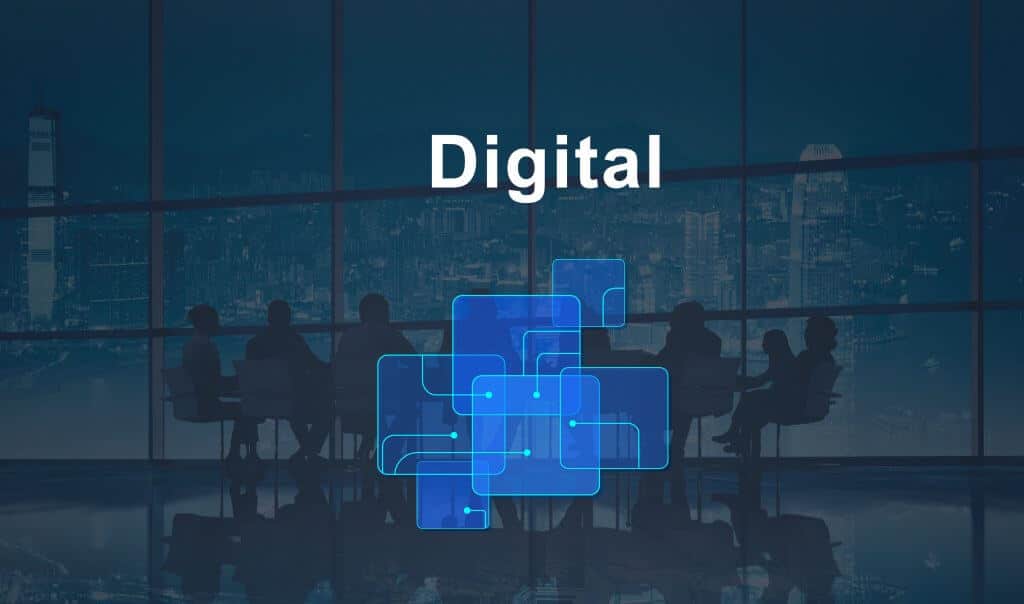In the fast-paced realm of the 21st century, the term “digital technology” is omnipresent, shaping the way we live, work, and connect. From smartphones to smart homes, the digital revolution has infiltrated every aspect of our lives. In this blog, we’ll embark on a journey to understand the essence of digital technology, exploring its origins, evolution, and its profound impact on society.
In the fast-paced realm of the 21st century, the term “digital technology” is omnipresent, shaping the way we live, work, and connect. From smartphones to smart homes, the digital revolution has infiltrated every aspect of our lives. In this blog, we’ll embark on a journey to understand the essence of digital technology, exploring its origins, evolution, and its profound impact on society.
Digital technology has come a long way since its inception. The roots can be traced back to the mid-20th century with the development of the first electronic computers. The subsequent decades witnessed exponential growth, marked by the advent of microprocessors, personal computers, and the internet. The 21st century brought forth smartphones, cloud computing, and the Internet of Things (IoT), solidifying digital technology as an indispensable force in our daily lives.

To comprehend the intricacies of digital technology, it’s essential to dissect its key components. Microprocessors, the brains behind computers, process and execute instructions. Storage devices, such as hard drives and solid-state drives, store vast amounts of data. Software, ranging from operating systems to applications, governs the functionality of digital devices. Networks facilitate communication and connectivity, while sensors and actuators drive the capabilities of IoT devices.
Digital technology has come a long way since its inception. The roots can be traced back to the mid-20th century with the development of the first electronic computers. The subsequent decades witnessed exponential growth, marked by the advent of microprocessors, personal computers, and the internet. The 21st century brought forth smartphones, cloud computing, and the Internet of Things (IoT), solidifying digital technology as an indispensable force in our daily lives.
The ubiquity of digital technology is evident in our daily routines. Smartphones serve as pocket-sized computers, enabling instant communication, navigation, and access to a plethora of information. Smart homes boast interconnected devices, allowing homeowners to control lighting, temperature, and security with a tap on their smartphones. Digital technology has also revolutionized industries, from healthcare to finance, streamlining processes and enhancing efficiency.

As we revel in the conveniences offered by digital technology, it’s crucial to acknowledge the challenges that accompany its rapid proliferation. Cyber security threats loom large, posing risks to personal privacy and sensitive data. The digital divide, characterized by unequal access to technology, exacerbates societal disparities. However, amidst these challenges lie opportunities for innovation and growth. Emerging technologies like artificial intelligence and block chain hold the potential to reshape industries and address pressing global issues.
Looking ahead, the future of digital technology promises even more profound transformations. The integration of artificial intelligence into everyday devices will enhance automation and decision-making capabilities. Quantum computing, with its unprecedented processing power, may revolutionize how we solve complex problems. Ethical considerations surrounding digital technology, such as data privacy and algorithmic bias, will become increasingly pertinent. Navigating this uncharted territory requires a concerted effort to strike a balance between innovation and ethical responsibility.
Digital Technology has become an integral part of our daily lives, influencing virtually every aspect of modern society. Rooted in binary code, it encompasses a vast spectrum of components and functionalities that shape our interconnected world. At the heart of digital technology are hardware components such as microprocessors and storage devices, which work with software ranging from operating systems to applications. These components enable the seamless processing, storage, and retrieval of vast amounts of data, facilitated by storage solutions like hard drives and cloud services.
Moreover, networking infrastructure serves as the backbone for global and local connectivity, facilitating communication and collaboration across geographical boundaries. The rise of sensors and actuators powers the Internet of Things (IoT), enabling automation and smart systems in various domains such as healthcare, transportation, and manufacturing.
However, with the creation of digital technology comes the heightened importance of cyber security to safeguard against threats and vulnerabilities that may compromise sensitive data and critical infrastructure. User interfaces play a pivotal role in facilitating effective communication between humans and machines, ensuring intuitive interaction and user experience across devices and platforms.
Artificial Intelligence (AI) is revolutionizing digital technology by introducing intelligent automation and decision-making capabilities across various domains. Machine learning algorithms analyze vast datasets to derive insights, optimize processes, and personalize experiences for users. Furthermore, the constant emergence of technologies like quantum computing and block chain promises to redefine our future by unlocking new possibilities in data processing, security, and decentralized systems.
It has also revolutionized industries such as healthcare, finance, education, and entertainment, driving innovation, efficiency, and accessibility. In healthcare, telemedicine and digital health solutions enable remote consultations, monitoring, and personalized treatment plans, improving patient outcomes and accessibility to healthcare services. In finance, fintech innovations such as mobile banking, digital payments, and crypto currencies are transforming traditional banking systems and democratizing access to financial services.
Additionally, it has revolutionized the way we access information, communicate, and consume media, with social media platforms, streaming services, and digital marketing tools shaping our digital experiences and social interactions. In conclusion, digital technology is a dynamic and transformative force that continues to evolve and reshape our world, offering immense opportunities and challenges as we navigate an increasingly digital and interconnected future.
Looking ahead, the future of digital technology promises even more profound transformations. The integration of artificial intelligence into everyday devices will enhance automation and decision making capabilities. Quantum computing, with its unprecedented processing power, may revolutionize how we solve complex problems. Ethical considerations surrounding digital technology, such as data privacy and algorithmic bias, will become increasingly pertinent. Navigating this uncharted territory requires a concerted effort to strike a balance between innovation and ethical responsibility.

TechyPros square measure a team of pros dedicated to manage and take the strain off from your internet development and different IT solutions . we've got been operating as a team since 2012, because of fast changes in technologies
© Copyright 2024- TechyPros